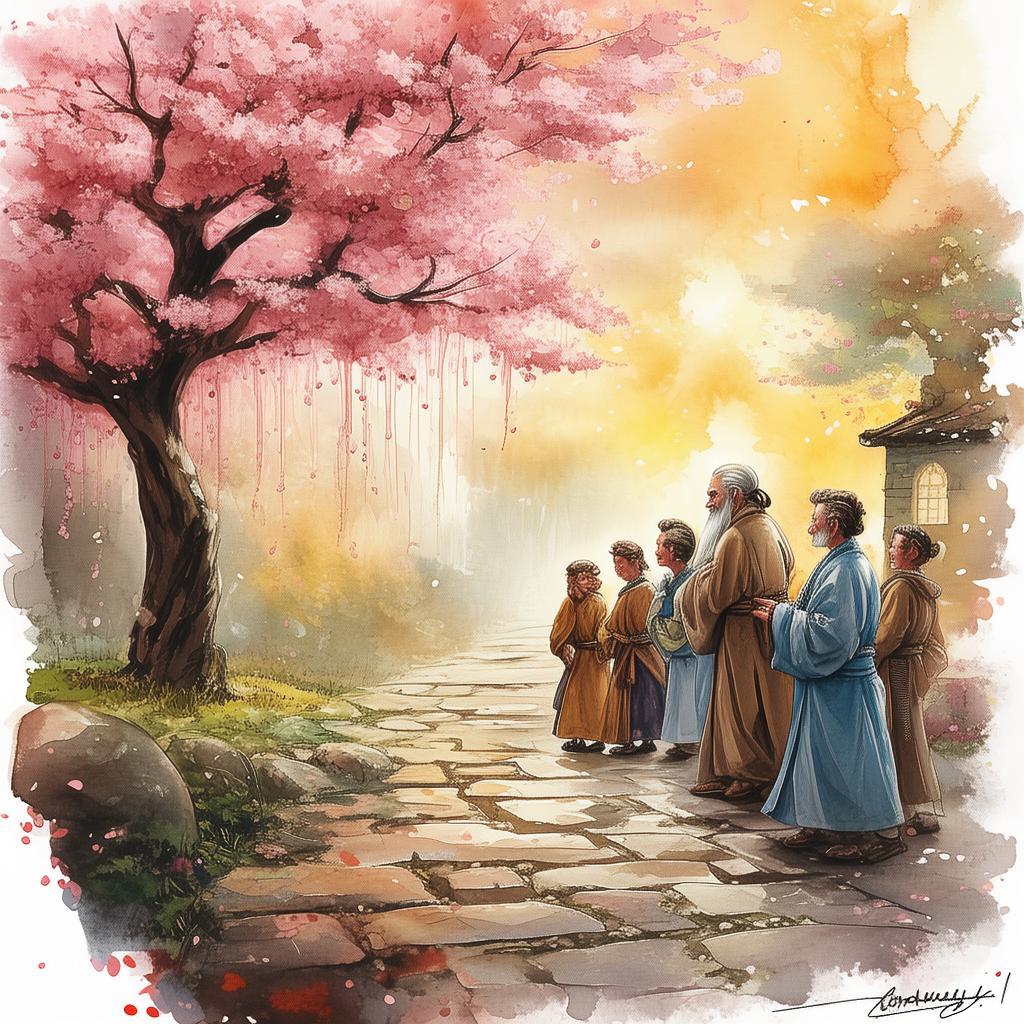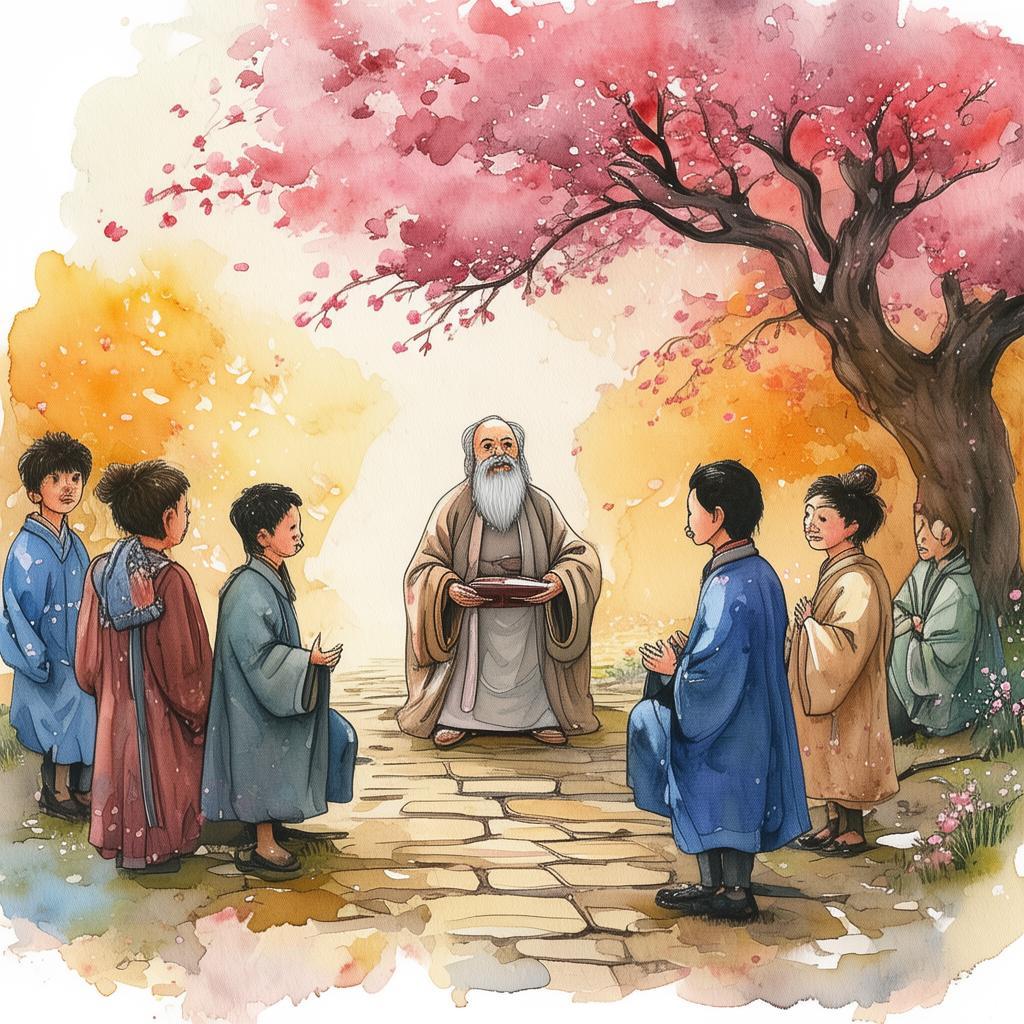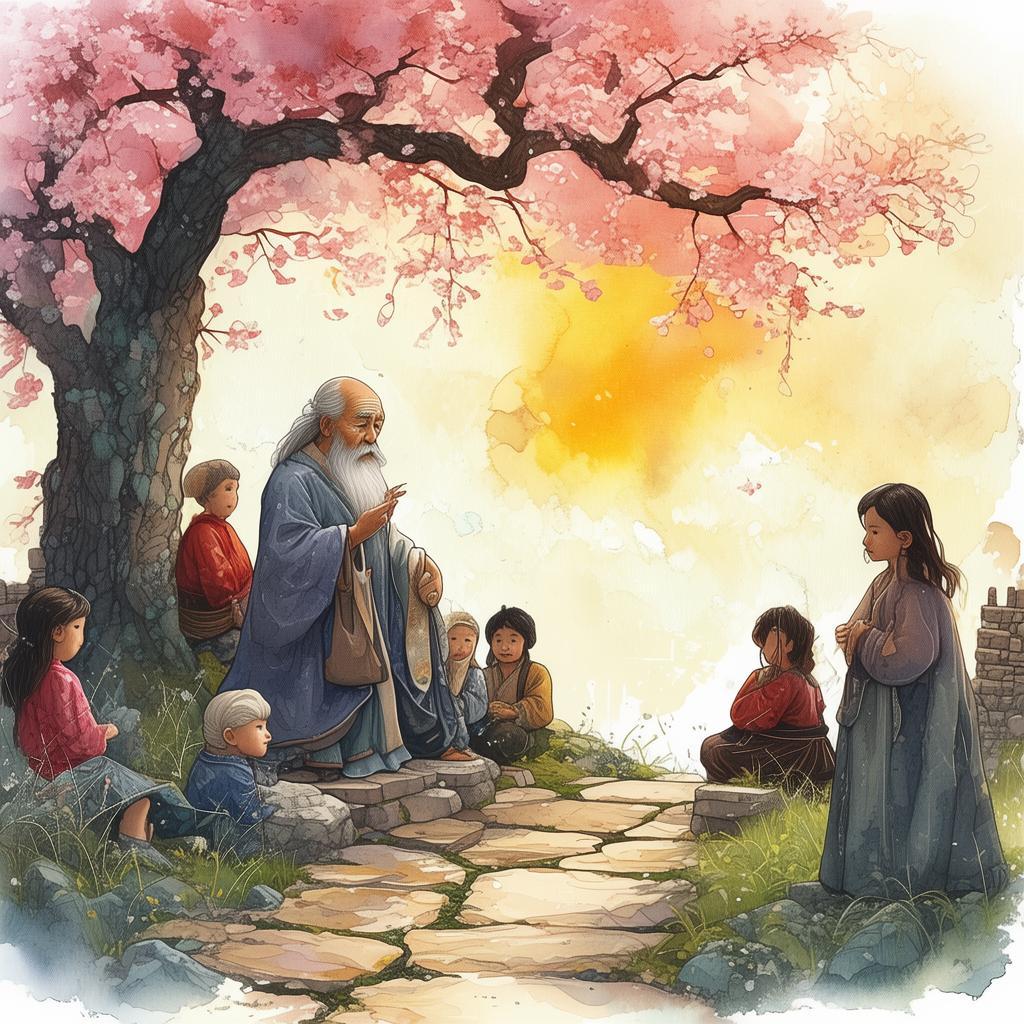The Lament of the Silent Accuser
In the quaint village of Eldenwood, where the whispering winds carried tales of yore, there stood a grand hall known as The Accuser's Keep. This was a place where accusations were laid bare, and the truth was often hidden beneath layers of deceit and sorrow. The hall was the cornerstone of a local saying: "A silent accuser has a guilty heart."
Once upon a time, there lived a bard named Lysander, whose melodies were as sweet as they were poignant. He was known far and wide for his tales of love and loss, his songs often echoing the very heartbeats of those who heard them. Yet, in his own life, Lysander carried a secret that weighed heavily upon his soul.
The story began on a crisp autumn evening, as Lysander sat beneath the moonlit sky, his lute in hand, singing of the eternal dance between love and heartache. His audience, a small crowd of villagers, were spellbound by the beauty of his voice and the depth of his lyrics. But Lysander's eyes were distant, for his mind was elsewhere—a place where the shadows of the past lingered.
Years ago, Lysander had fallen in love with a woman named Elara, whose beauty was as captivating as her heart was kind. Their love was as forbidden as it was passionate, for Elara was betrothed to another—a man named Eamon, the village's most respected warrior.
The love triangle was a source of constant tension, and as the seasons turned, the accusations grew. The villagers whispered about the affair, casting their silent judgments upon Lysander. Elara, caught in the crosshairs of her own loyalties, was torn between her love for Lysander and her duty to Eamon.
One night, as the full moon hung like a silver lantern in the sky, Elara approached Lysander. Her eyes, filled with the weight of her decision, spoke volumes. "Lysander, I must leave you. I cannot bear the accusations any longer. Eamon will be crowned king, and I must be by his side."
Lysander's heart shattered into a thousand pieces, but he held his silence. His love for Elara was too strong to allow him to betray her with words of pain. He played his lute, a melancholic tune that seemed to weep for the lost love of two souls.
The following day, Lysander was seen leaving the village, never to return. His departure was met with whispers of betrayal, and the silent accusations followed him wherever he went. Years passed, and Lysander became a wanderer, his lute a testament to the love he had once known.

One day, as he wandered through a forest, Lysander stumbled upon an old, abandoned inn. The innkeeper, an elderly woman named Mab, noticed the stranger's sorrowful eyes and invited him in. She listened to his story, her heart heavy with empathy.
Mab, with her years of wisdom, realized that Lysander's silent accusations were a form of redemption. She suggested that he compose a ballad, one that would reveal the truth of his love and the accusations that had haunted him for so long.
With Mab's encouragement, Lysander sat down and began to write. The words flowed from his pen like a river, each note of his lute a testament to the love that had been lost and the accusations that had followed him.
As the ballad reached its conclusion, the villagers gathered, drawn by the sound of Lysander's voice. The melody of the accused heart filled the air, and the villagers listened, their hearts heavy with the weight of their silent judgments.
Lysander sang of his love for Elara, of the pain that had driven him from the village, and of the accusations that had followed him. He sang of his heartache, and the villagers felt the weight of their silent accusations.
As the final note resonated through the inn, a hush fell over the crowd. In that moment, the truth was laid bare, and the silent accusers were forced to confront their own guilt. Lysander's ballad had not only brought peace to his own heart but had also freed the hearts of the villagers.
The bard's melody had become the melody of the accused heart, a reminder that silence does not absolve one of their actions. The tale of Lysander and Elara became a legend in Eldenwood, a tale of love, betrayal, and the eternal search for truth.
And so, the saying "A silent accuser has a guilty heart" was no longer just a saying but a truth etched into the very fabric of the village. The Bard's Ballad, The Melody of the Accused Heart, had become a song that echoed through the ages, a melody that would never be silent.
✨ Original Statement ✨
All articles published on this website (including but not limited to text, images, videos, and other content) are original or authorized for reposting and are protected by relevant laws. Without the explicit written permission of this website, no individual or organization may copy, modify, repost, or use the content for commercial purposes.
If you need to quote or cooperate, please contact this site for authorization. We reserve the right to pursue legal responsibility for any unauthorized use.
Hereby declared.









